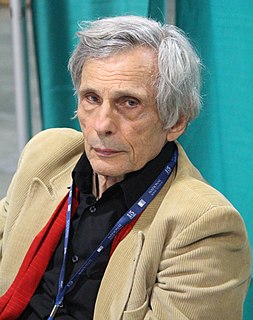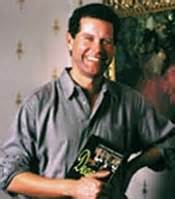A Quote by Camille Paglia
Even the best critical writing on Emily Dickinson underestimates her. She is frightening. To come to her directly from Dante, Spenser, Blake, and Baudelaire is to find her sadomasochism obvious and flagrant. Birds, bees, and amputated hands are the dizzy stuff of this poetry. Dickinson is like the homosexual cultist draping himself in black leather and chains to bring the idea of masculinity into aggressive visibility.
Related Quotes
All of a sudden I understand why I like Aliki Barnstones poems so much. They remind me of the one she has studied most - shall we call her her master - Emily Dickinson. Not in the forms, not, as such, in the music, and not in the references; but in that weird intimacy, that eerie closeness, that absolute confession of soul.... In Barnstone, too, the two worlds are intensely present, and the voice moves back and forth between them. She has the rare art of distance and closeness. It gives her her fine music, her wisdom, her form. She is a fine poet.
Sappho is a great poet because she is a lesbian, which gives her erotic access to the Muse. Sappho and the homosexual-tending Emily Dickinson stand alone above women poets, because poetry's mystical energies are ruled by a hierach requiring the sexual subordination of her petitioners. Women have achieved more as novelists than as poets because the social novel operates outside the ancient marriage of myth and eroticism.
Cynie Cory roams the outer reaches of the heart’s territory, from the snowy winter of family life to the tropical jungles of love. She wears her heart on her sleeve and it is as big as the country she writes about. Is she the quintessential American girl? You bet she is, part Annie Oakley, part Emily Dickinson—sharpshooting poet of wild nights. She zooms in on the detritus of love—the broken fragments, the fallen leaves—and puts together a collage that is as heartbreaking as it is beautiful. Watch out—she’s driving down your street.
All the black leather she needs is the E-Z boy recliner where her love is parked with one of his hands wrapped around a remote, the other, a bottle of beer. She's right. It's kinky. The way he doesn't look away from the TV, as her head bobs in his lap like a fisherman's float on a nature program, hectic with the pace his breath sets. His crotch swells under her mouth's prowess. He's such a sweetheart he waits until the commercials to come.
And I knew in my bones that Emily Dickinson wouldn't have written even one poem if she'd had two howling babies, a husband bent on jamming another one into her, a house to run, a garden to tend, three cows to milk, twenty chickens to feed, and four hired hands to cook for. I knew then why they didn't marry. Emily and Jane and Louisa. I knew and it scared me. I also knew what being lonely was and I didn't want to be lonely my whole life. I didn't want to give up on my words. I didn't want to choose one over the other. Mark Twain didn't have to. Charles Dickens didn't.
I think it is our job as poets to refuse the terms that society so often sets for usefulness. That, for instance, is what Dickinson did: she refused to be a wife, a homemaker, a standard member of her community. She knew she had to in order to have the space and time to write her poems. Thank god she said no!

































